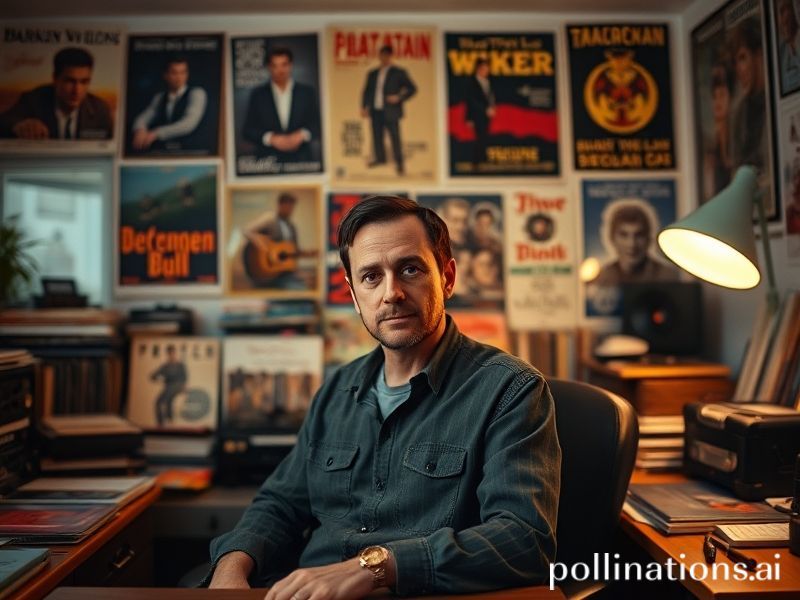Brian Jason Wagner: The Jet-Lagged Oracle of Global Anxiety
Brian Jason Wagner, a name that sounds suspiciously like the alias of a mid-tier Bond villain who sells artisanal crypto-truffles in Zürich, is in fact a flesh-and-blood American now orbiting the international spotlight. From the vantage point of a world that has spent the last decade rubber-necking at every minor US tremor, Wagner’s sudden emergence is less a headline than a Rorschach test: Washington sees a prodigal consultant, Brussels sees a potential sanctions loophole, and Singapore just sees another guy trying to expense yakitori.
Officially, Wagner’s résumé glitters with the usual Beltway baubles—Pentagon fellowships, strategic-tech advisories, a brief cameo at a think tank whose acronym is already forgotten. Unofficially, he is the human equivalent of that USB stick you find in a rental car: everyone plugs it in, nobody quite trusts it, yet the files are too juicy to delete. The global fascination stems not from what Wagner has done—those details are locked behind NDAs thicker than a Russian novel—but from what his trajectory says about the state of trans-Atlantic anxiety. In short, he is the canary wheeled into the geopolitical coal mine, tweeting in four languages.
Take Europe, still busy re-arming its spreadsheets after discovering that “just-in-time” supply chains work beautifully until someone parks a tank on them. Wagner’s latest white paper—leaked, naturally, over breakfast croissants in Brussels—argues that the Old World should treat AI governance like wine regulation: terroir matters, but so does the hangover. Cue frantic nodding from Strasbourg to Stockholm, followed by a collective Google-translate panic when someone realizes the French version of “algorithmic accountability” sounds suspiciously like “culinary sobriety.”
Meanwhile, in Asia, Wagner’s brand of techno-realpolitik is being sampled like a limited-edition boba flavor. Tokyo wants him to explain why US cloud firms keep routing Pacific data through Iowa, a state most Japanese engineers know only from corn-based cartoons. Seoul, ever the pragmatist, has already hired a boutique agency to ghost-Wagner a Korean-language op-ed on “semiconductor sovereignty,” which is corporate-speak for “please don’t turn our fabs into collateral TikTok.” Even Hanoi, still dizzy from the last trade war, has scheduled him for a closed-door fireside chat—location undisclosed, but rumor says the décor will be retro-French colonial, a subtle reminder that every empire eventually holds a going-out-of-business sale.
What unites these disparate capitals is not affection for Wagner himself—he has the charisma of an airport sandwich—but the recognition that he embodies America’s latest export: bureaucratic adrenaline. After years of shipping Hollywood, fast food, and democracy starter kits, Washington has pivoted to selling sheer nervous energy. It arrives in PowerPoint form, complete with contingency appendices and a footer that reads, “Subject to midterm elections.” The world buys it because the alternative is admitting that no one really knows how to regulate a cloud that refuses to respect borders, or a social network that monetizes outrage faster than a Swiss banker can say “numbered account.”
Yet for all the continental flattery, Wagner remains an archetype of late-stage American overextension: a man dispatched to reassure allies that the empire still remembers their names, even as it mispronounces them. One can almost hear the faint echo of British viceroys assuring maharajas that the Raj was merely temporary—right up until the suitcases were packed and the last gin and tonic evaporated in the Delhi heat.
So when Wagner boards his next carbon-offset flight—destination still TBA, but the in-flight magazine will feature a think piece he ghost-wrote about himself—observe the cabin carefully. The European commissioners will be reviewing talking points; the Asian delegates will be calculating consulting fees; and somewhere over the pole, the plane’s Wi-Fi will hiccup, reminding everyone that even our shared anxieties are subject to latency. Brian Jason Wagner, consultant, cipher, and accidental metaphor, will simply fasten his seatbelt, smile at the irony, and prepare to land in yet another capital that believes salvation can be delivered in a carry-on.







